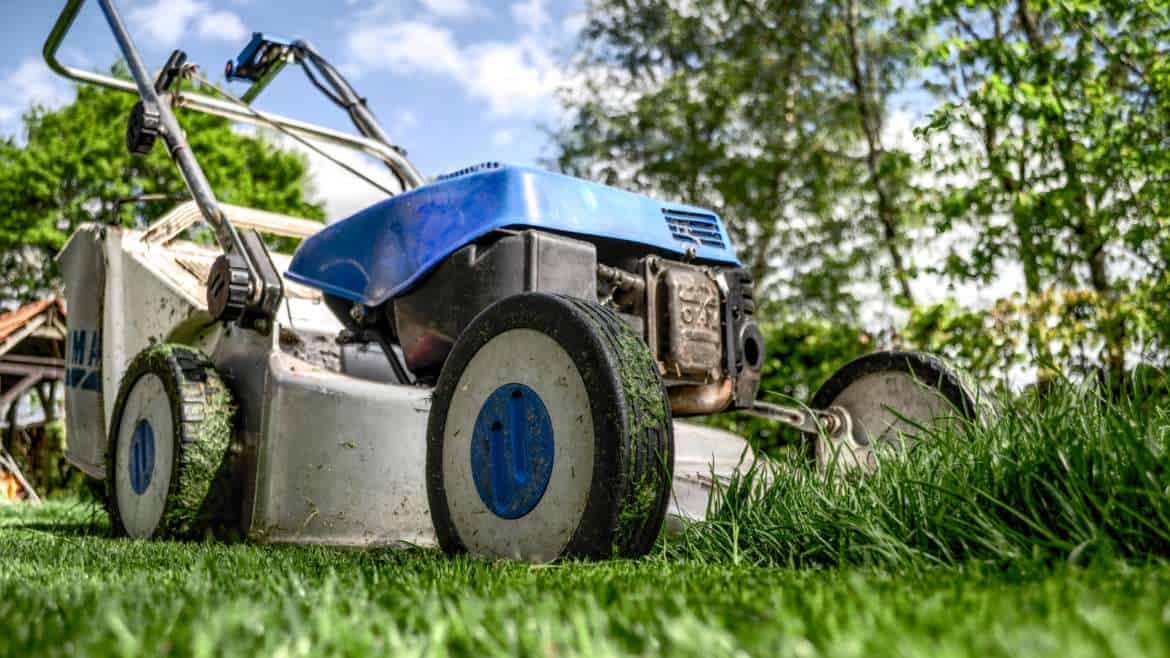Once you have decided on a variety of King Ranch turf grass to use on your project and had it installed you will have to decide how to maintain it. Things like picking the right fertilizers, using the right insecticides and a watering schedule are all important to consider. Obviously, mowing is going to be part of that maintenance discussion, but what type of mower is best? Should you use a reel mower or a rotary mower? The short answer is: It depends. Let’s look at the strengths and weaknesses of each.
What is the difference?
Many people hear the term reel mower and aren’t quite sure what that means. A reel mower uses several blades, spinning vertically against a single stationary blade, sometimes called a bed knife. The action is similar to a pair of scissors. The spinning blades cause the turf grass to stand up and it is cut against the bed knife.
A rotary mower, on the other hand, uses a single blade that spins horizontally at a high speed. The cutting is really more of a high-speed tearing of the grass than an actual cutting. This results in a less uniform cut.
Common uses
The rotary mower is the one most familiar to the majority of homeowners. They’re usually gas-powered, although there are electric and battery-powered versions as well. Rotary mowers for home use can range from small mowers that the homeowner pushes up to riding tractors. Commercial mowers are even bigger.
Reel mowers, on the other hand, can be gas-powered or human-powered. Reel mowers were once popular in city and suburb settings that had small yards. As homeowners become more environmentally friendly, the human-powered version is seeing a resurgence in popularity. Gas-powered versions are often found on commercial jobs, such as golf courses. Of course, the size of the job will be a factor. Maintaining a small side yard can be done with a human-powered reel mower, but larger jobs, like a golf course, simply aren’t realistic.
Terrain and vegetation
The terrain and vegetation make a difference in this discussion. Reel mowers tend to perform best on flat, even terrain, while rotary mowers are more forgiving to terrain differences. The thickness and height of the grass also make a difference. When grass is too long (over 1 inch), very thick or very fine-bladed grass, the reel mower will often not perform as well. Its ideal task is short grasses like our Tifway 419 Bermudagrass. In fact, we recommend a reel mower for that variety.
Rotary mowers can not only handle uneven terrain, but they can handle longer grasses with less difficulty. Wet or damp grasses also tend to do better with a rotary mower versus a reel mower. The rotary variety also handles debris like sticks or rocks better than reel mowers.
Maintenance
Both versions have pros and cons here. Reel mowers require the blades to be sharpened more frequently because theirs is a true cutting action, while the rotary mower is more of a whipping action. Reel mower blades are hard to sharpen and if they are improperly adjusted, the nice even cut you are expecting won’t happen.
On the other hand, rotary mower blades are easier to sharpen. Despite the fact that they don’t make as fine of a cut, they do still need to be sharpened. Dull blades can injure the grass and make them susceptible to disease.
The push-powered reel mowers obviously don’t have any engine maintenance considerations, but those factors will be the same with both reel and rotary mowers using gas-powered engines.
Here is another resource for discussing the differences. King Ranch Florida Turfgrass is a full-cycle operation. We not only grow and harvest our different varieties of turf grass, but we will deliver and install your new grass as well. King Ranch Florida Turfgrass is proud of the environmentally-conscious “best management practices” farming policies it has implemented throughout its Florida operations. Contact us if you have questions about which variety of turfgrass will meet your needs.


